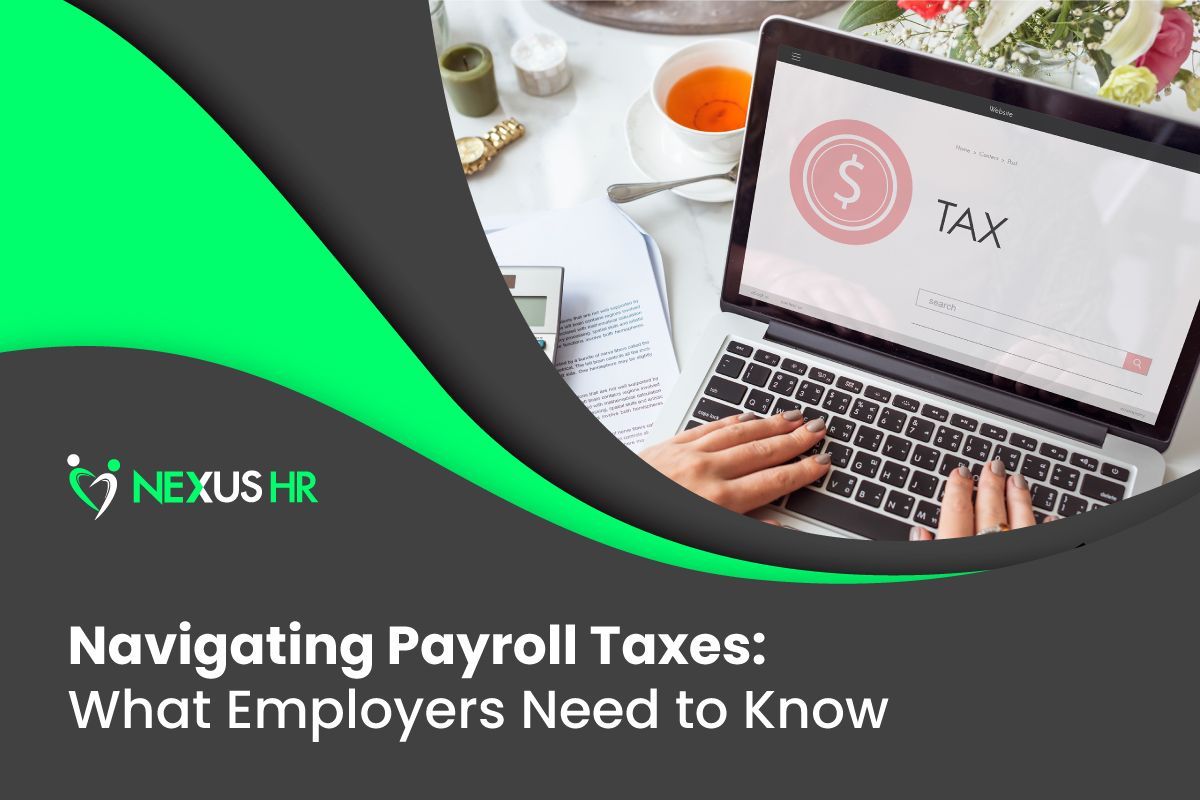What is ESG in the Workplace & Why Should Your Company Care?
Today’s company leaders strive to achieve more than just success. They have their eyes set on sustainable success.
Environmental, social, and governance (ESG) criteria have become crucial considerations for organizations that want to thrive responsibly and sustainably. Business leaders have realized that, when planned strategically and integrated successfully into their companies, ESG initiatives can help them boost financial performance, improve employee well-being, and make the world a better place.
What is ESG in the Workplace?

Analytics company Gallup defines ESG as the environmental, social, and governance criteria for evaluating an organization's success beyond the profit it makes.
According to
A Great Place to Work, ESG stemmed from socially concerned investors’ desire to use non-financial measures when choosing their investments. Unfortunately, they didn’t have a way to account for externalities: things that did not cost an organization anything (like dumping waste) but had a cost to others (those who had to clean it up).
During the UN World Commission on Environment and Development in 1987, the creation of the
Brundtland Report helped shape national policies and identify key measures to protect the planet and human life.
ESG became a framework that companies used to keep themselves accountable and practice sustainability management, ethical practices, and conscious consumerism. Over the years, it has evolved into the standards by which society expects companies, nonprofits, and governments to operate.
By challenging company leaders to shift their focus from short-term profit to long-term impact, ESG ultimately redefines what it means to be a successful organization. It’s not just about how much you’re earning or how fast you’re growing; it’s also about your legacy and how you’re making the world a better place.
The Three Pillars of ESG

ESG has three separate but interconnected elements: environmental, social, and governance. Let’s look into each component and see how organizations like yours can ensure they’re meeting the set standards:
Environmental Sustainability
The environmental pillar is founded on the commitment to protect the planet. Companies do this by measuring how their activities affect the environment and finding a way to reduce the negative impacts. Some key questions organizations need to ask themselves when evaluating their environmental sustainability efforts are:
- How do the actions of my organization affect the environment, locally and globally?
- How does my organization use energy and other resources?
- In what ways does my organization create waste?
- What are the environmental impacts of my organization’s products and services?
Enterprise platform company
Countable labels the environment pillar as the most widely targeted and easily understood among the three. Because of this, companies all over the world already have systems tracking their impact on the environment.
You can measure your company’s energy consumption, water usage, and greenhouse gas emissions. You can also implement initiatives that help reduce your carbon footprint, like recycling, shifting to eco-friendly materials, and supporting conservation efforts.
Social Policy
According to McKinsey & Company, the social pillar “addresses the relationships your company has and the reputation it fosters with people and institutions in the communities where you do business.”
It focuses on how a company interacts with and contributes to the welfare of its employees, communities, and society as a whole. The social pillar pushes organizations to ask critical questions like:
How are my company's actions and decisions affecting society?- Are my employees treated with respect, fairness, and equity in the workplace?
- Does my company care about the well-being of its employees, customers, and the community around it?
- Does my company adhere to labor laws and regulations?
Nneoma E. Njoku, the creator of the U.S. Transparency Awards, found that events like the COVID-19 pandemic, the Black Lives Matter movement, the #MeToo movement, and
the Great Resignation have driven increased interest in social issues and regulatory disclosures.
Concerned citizens are expecting companies like yours to disclose information on the social policies and practices you implement. Njoku identified these data as your turnover rates, diversity among the workforce and leadership, training and development programs, and
pay equity.
Regulatory bodies are also increasing company assessments on societal issues, particularly on how you engage with and contribute to the well-being of the communities in which you operate.
Read More:
What is DEI in the Workplace?
Fair Governance
According to Sustainability Magazine, the governance pillar refers to a company's leadership, executive remuneration, audits, internal controls, and shareholder rights.
It focuses on how an organization is governed, ensures accountability, and aligns its actions with the interests of stakeholders (i.e., shareholders, employees, customers, and society as a whole).
At its core, the governance pillar revolves around building and maintaining trust. It drives organizations to ask:
Can investors trust that my company will make good on its promises?- Does my company make decisions honestly, ethically, and fairly?
- Are my company employees confident that their workplace is safe and fair?
- Are the goals of company leadership aligned with the goals of shareholders, employees, and customers?
Patagonia is one of the top rated companies for good governance. Well known for its ethical practices, Patagonia’s products are made in factories that treat workers fairly. It is also transparent about its decision-making process, its successes and failures, and the suppliers it partners with.
Why Should You Have an ESG Strategy?

An ESG strategy is a systematic approach your organization adopts to incorporate environmental, social, and governance considerations into your operations, decision-making processes, and overall business strategy.
Besides making your organization sustainable and compliant, a well-executed ESG strategy also helps you achieve the following goals: secure investor confidence, foster customer loyalty, minimize operating expenses, and enhance asset management, ultimately leading to improved financial performance.
Increase Employee Satisfaction and Productivity
A
Marsh McLennan study shows that organizations with the highest employee satisfaction scores have significantly higher ESG scores than their peers. And because
studies show that satisfied employees work harder, stay longer, and seek to produce better results, building an ESG strategy in your organization could boost productivity by
31%.
Get High-Quality Talent
By 2023, Millennials and Gen Zs will make up 72% of the global workforce. A Deloitte study shows that members of these generations are deeply concerned about social issues and have a strong desire to drive societal change. If you want your organization to attract and hire high-quality talent, highlighting your commitment to social responsibility on environmental, social, and governance issues will definitely help.
Read More:
Class of 2023: Understanding Job Market Expectations of Recent Grads
Attract Investors and Lenders
According to Gallup, 48% of investors admit to being interested in sustainable investing funds. An effective ESG strategy showcases your commitment to sustainable practices, responsible governance, and social impact. This gives investors and lenders confidence in your company's ability to create long-term value, boost financial performance, and manage risks effectively.
How to Get Started With an ESG Strategy:

Every organization is unique, so there is no one-size-fits-all formula for starting and implementing an ESG strategy. However, a few questions can help guide your organization as it takes its first few steps toward adopting ESG initiatives:
What is the current state of ESG in my company?
Before you set anything in motion, it’s vital to take an honest look at how your company is currently addressing environmental, social, and governance concerns. Start a careful evaluation of your ESG goals.
Do you need to start from scratch, or are there existing ESG initiatives in place? What resources do you have that can contribute to a more structured ESG strategy? What are your company’s
superpowers and vulnerabilities?
What is my company’s purpose?
In the words of leading governance and risk management authority Catherine Maxwell, ESG is deeply connected with corporate purpose. Your ESG strategy must align with and link to your organization’s core values, vision, and mission.
What is your company’s purpose? What do you stand for? And how are they connected to what you do and how you do it?
Which regulations and standards are relevant to my company?
Sustainability recommends looking into ESG-related regulations and reporting standards that may be relevant to your company. Having this information beforehand allows you to zero in on your goals, plan more effectively, and ensure compliance.
Sustainability platform Brightest has an
updated list of key U.S. ESG regulations that you may find helpful.
Nexus HR Helps You Focus on ESG in the Workplace

Setting up an ESG strategy for your company doesn’t happen overnight; it takes time, effort, collaboration, and lots of data.
As a company leader, you have a lot on your plate. And unless you find a way to hand some tasks over to your team members, your plan to create an effective ESG strategy isn’t going to move forward.
Nexus HR can help you with that.
As a full-service HR solutions company, we provide organizations like yours with
comprehensive recruitment,
payroll, and
remote HR services. Nexus HR is committed to helping leaders offload time-consuming HR tasks so you can focus on business-building initiatives, like developing a successful ESG strategy for your company.











